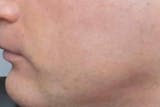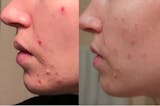Monoclonal Antibodies (mAbs) offer targeted relief of acute eczema flare symptoms by moderating the immune response.
They can be a powerful tool when combined with systemic immune tools, skin barrier strengthening, and trigger avoidance.
Monoclonal antibodies have emerged as a promising and innovative treatment for eczema, providing significant relief during an acute flare.
Eczema is a chronic skin condition characterized by periodic acute flares, marked by red, itchy, and inflamed skin. The severity and duration of an acute eczema flare are influenced by three main factors:
In this article, we'll explore how monoclonal antibodies, such as Dupilumab (Dupixent), Tralokinumab (Adtralza or Adbry), and Lebrikizumab, work to modulate the immune response to alleviate the symptoms of an acute flare.
Monoclonal antibodies work well in people with an overactive immune system to help them regulate the inflammatory response, but they are not a cure for eczema. Long-term management of eczema should include the elimination of triggers and a strengthening of the skin barrier as well as natural systemic immune modulation like mental health and exercise.
JUMP TO SECTION:
What are Monoclonal Antibodies?
Monoclonal antibodies (mAbs) are lab-engineered molecules designed to act like naturally occurring antibodies in the body. Just as the immune system creates antibodies to identify and neutralize foreign substances such as bacteria and viruses, monoclonal antibodies can be designed to target specific antigens, which are the unique proteins. Each monoclonal antibody is made to bind to a single antigen, which is why they are termed 'monoclonal.'
Once a monoclonal antibody binds to its target antigen, it can neutralize the activity of the agent. The precision with which monoclonal antibodies work allows them to be powerful tools in disease treatment with minimal impact on healthy cells and tissues.
The Science Behind Monoclonal Antibodies for Eczema
Some atopic eczema patients have a dysregulation of their immune system which causes an increased number of type T2 helper cells (Th2 cells) to be produced in response to allergens or other triggers. The Th2 cells release proinflammatory cytokines, such as interleukin-4 (IL-4) and interleukin-13 (IL-13). As discussed in the [immune control] page, these cytokines play a central role in the development of atopic eczema by contributing to IgE production, histamine release, and factors that impair the skin barrier from repairing itself.(CHI 2020)
The impairing of the skin barrier repair causes the flare to persist and to be more susceptible to new triggers entering the skin. At the same time, the increased cytokines induce increased symptoms, like itchiness, which can increase stress levels and scratching, further stimulating the immune system and trigger entry.
Dupilumab is a monoclonal antibody that targets and inhibits IL-4 and IL-13, while Tralokinumab, and Lebrikizumab inhibit only IL-13.(SED 2022)(ROS 2019) By interrupting the signaling of these proinflammatory cytokines, these treatments can effectively reduce the symptoms of a dysregulated immune system around an acute eczema flare.
How Are Monoclonal Antibodies Administered?
Monoclonal antibody treatments are administered via injection, with specific protocols for each drug. Dupilumab, for example, can be self-administered or given by a caregiver after proper training. For patients over 12 years old, one injection is given every two weeks, while 6 to 11-year-olds receive one injection every four weeks. The medication is available in pre-filled syringes or pens and must be stored in the refrigerator.(NES)
Similarly, Tralokinumab is administered through injections every two weeks. The first dose consists of four injections, followed by two injections every two weeks thereafter.(NES)
Lebrikizumab, which is pending FDA approval, will also be given as an injectable treatment.
Advantages of Monoclonal Antibodies for Eczema Treatment
Monoclonal antibodies have shown significant potential in treating eczema, with the possibility of long-term positive outcomes.
Benefits include:
- Improved skin microbiome presence with Dupilumab treatment.(OLE 2021)
- Restoration of HSD3B1 gene expression, leading to decreased IL-4 and IL-13 levels.(ZHA 2021)
- Significant improvement in clinical and patient-reported outcomes with Dupilumab, with even better results when used alongside topical corticosteroids and scoring the highest efficacy when compared to JAK inhibitors.(GOO 2017)(SED 2022)
- Rapid itchiness relief by day two of treatment and improvements in sleep, discomfort, depression, anxiety, and overall quality of life as early as week two of treatment.(COR 2020)
Traditional eczema flare treatments often involve the use of topical corticosteroids or calcineurin inhibitors, which can effectively reduce inflammation and itchiness. However, they do not always control the disease in more severe cases and are more broad immune suppressor, leading to more side effects with long-term use.
Challenges and Drawbacks of Monoclonal Antibodies
Despite their promising therapeutic potential, monoclonal antibodies are not without their challenges. Side effects can occur, and these may range from mild to severe, such as:
- Side effects, including conjunctivitis, hypereosinophilia, nasopharyngitis, upper respiratory tract infection, injection site reactions, and skin infections.(GOO 2017)
- Higher incidence of conjunctivitis in patients with severe eczema and a history of the condition.(AKI 2019)
- Rare cases of arthritis in fingers and Achilles tendons with Dupilumab use, though symptoms may reduce over time.(JAY 2022)
- Cost and accessibility, as these treatments can be expensive and may not be widely available to all patients.
- Uncertainty regarding long-term effects and outcomes.
- Potential development of resistance to monoclonal antibodies, leading to reduced treatment effectiveness.
There have been low rates of adverse events from phase 2 and 3 studies and therefore no reason to suspend use.(FER 2020)
Ultimately, monoclonal antibodies work by modulating the immune response, and this can increase susceptibility to certain infections and dysregulate the immune system.
At the root of eczema though, is a weakened skin barrier due to mutations in the body’s ability to build and repair the skin barrier. For long-term management of eczema, immune modulators should be used as part of a comprehensive treatment plan that may include skin barrier strengthening tools and strategies to avoid triggers.
Managing Eye Complications
Blepharitis is a condition that can cause conjunctivitis and is often caused by an overgrowth of staphylococcus or dysfunction of the meibomian glands. These glands, located at the base of the eyelashes, lubricate the eyes, but if they become capped for too long, they can die off, leading to lifelong dry eyes.
Therefore, it is important to use warm compresses and eyelid manipulations to loosen the caps. Eye drops can also be used to alleviate dryness, itchiness, and prevent infections.(OPT)
Managing Head and Neck Complications
One of the more common side effects of dupilumab treatment is the worsening of face and neck eczema. Due to the thinness of the skin in these areas, topical calcineurin inhibitors are a preferable treatment over topical steroids, which are not recommended for use on the face.
If you have seborrheic eczema, it is important to discuss the use of antifungal shampoos with your doctor, such as ketoconazole (Nizoral) or maximum strength Selsun Blue. Zinc shampoos like DHS Zinc Shampoo 2% are also useful for treating seborrheic eczema (dandruff) by healing the scalp and normalizing epithelial keratinization, sebum production or both.
Coconut oil has antimicrobial properties which can be beneficial.(LIN 2018) In addition, supporting the microbiome in the affected areas can also help improve the condition of the skin.
Are Monoclonal Antibodies Right For Me?
Monoclonal antibodies represent a highly targeted approach in the management of eczema flares. By targeting specific proteins that drive the inflammation characteristic of certain people with eczema, monoclonal antibodies offer a targeted, effective treatment strategy. They have shown considerable promise in alleviating symptoms, improving skin health, and enhancing the quality of life for individuals with moderate to severe eczema.
Currently, these treatments are mainly accessible to those with severe eczema, trial patients, or individuals who can afford the cost.
As monoclonal antibody treatments require medical intervention for administration, it is crucial to discuss your options with a healthcare professional, such as a dermatologist, before deciding if this treatment is the right choice for you.
We understand that navigating the world of eczema treatments can be complex, and you may have further questions or concerns about monoclonal antibodies. Please feel free to reach out to us for more information. We are committed to helping you better understand your treatment options and empowering you to make informed decisions about your health.



